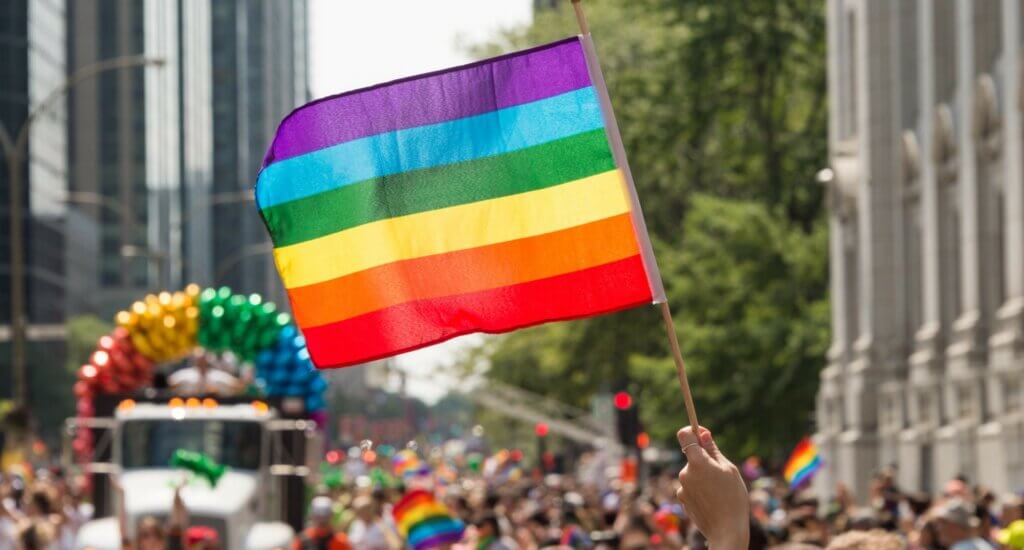
By Dolores Davies, Newsletter Reporter
This month we are honoring the LGBTQ community with pride celebrations and parades as well as workshops and symposia. At San Diego 350, paying tribute to LGBTQ Pride is important to us. While at first glance, it may not seem to some that climate change has any specific relevance to the LGBTQ community. Just peel back a couple of layers and it becomes clear that LGBTQ groups have perhaps the most to fear from the impacts of climate change. In fact, recent research has documented that LGBTQ communities tend to bear disproportionate environmental impacts, due to their marginalized status. LGBTQ youth are 120% more likely to experience homelessness, and no less than 40% of the homeless youth population are LGTBQ.
According to a recent research paper published in the American Journal of Public Health by Michelle Ball and Leo Goldsmith of the Yale School of Environment, the discrimination faced by individuals in the LGBTQ community leads to increased economic, employment, and health inequities that reduce their capacity to deal with the impacts of climate change.
In addition to the numerous health and social ramifications that LGBTQ communities must contend with, insecure housing situations also increase their vulnerability to climate change-induced weather events. Recent record-breaking cold snaps and heatwaves on the East and West coasts respectively hit homeless populations especially hard. Not only do homeless people suffer from a lack of housing and healthcare, they also tend to live on the concrete and asphalt streets, areas that are most conducive to the “heat island effect” which is exacerbated by warm weather.
Unlike many environmental effects that negatively impact a particular region, the deleterious effects of climate change will be felt broadly—very few individuals are likely to escape its effects. Given the disproportionate burden that is placed on the LGBTQ community, it is especially important that these groups—along with other disadvantaged groups—be well-represented in the climate movement. Fortunately, environmental causes attract a high level of participation from LGBTQ groups, and San Diego 350 is proud to represent a highly diverse group of volunteers and workers. Increasingly, we believe that in order to succeed, the climate movement needs LGBTQ voices, just as it needs Black, Latinx, and Indigenous voices, just as it needs the voices of the disabled and other marginalized groups. Bottom line: we need everyone.
